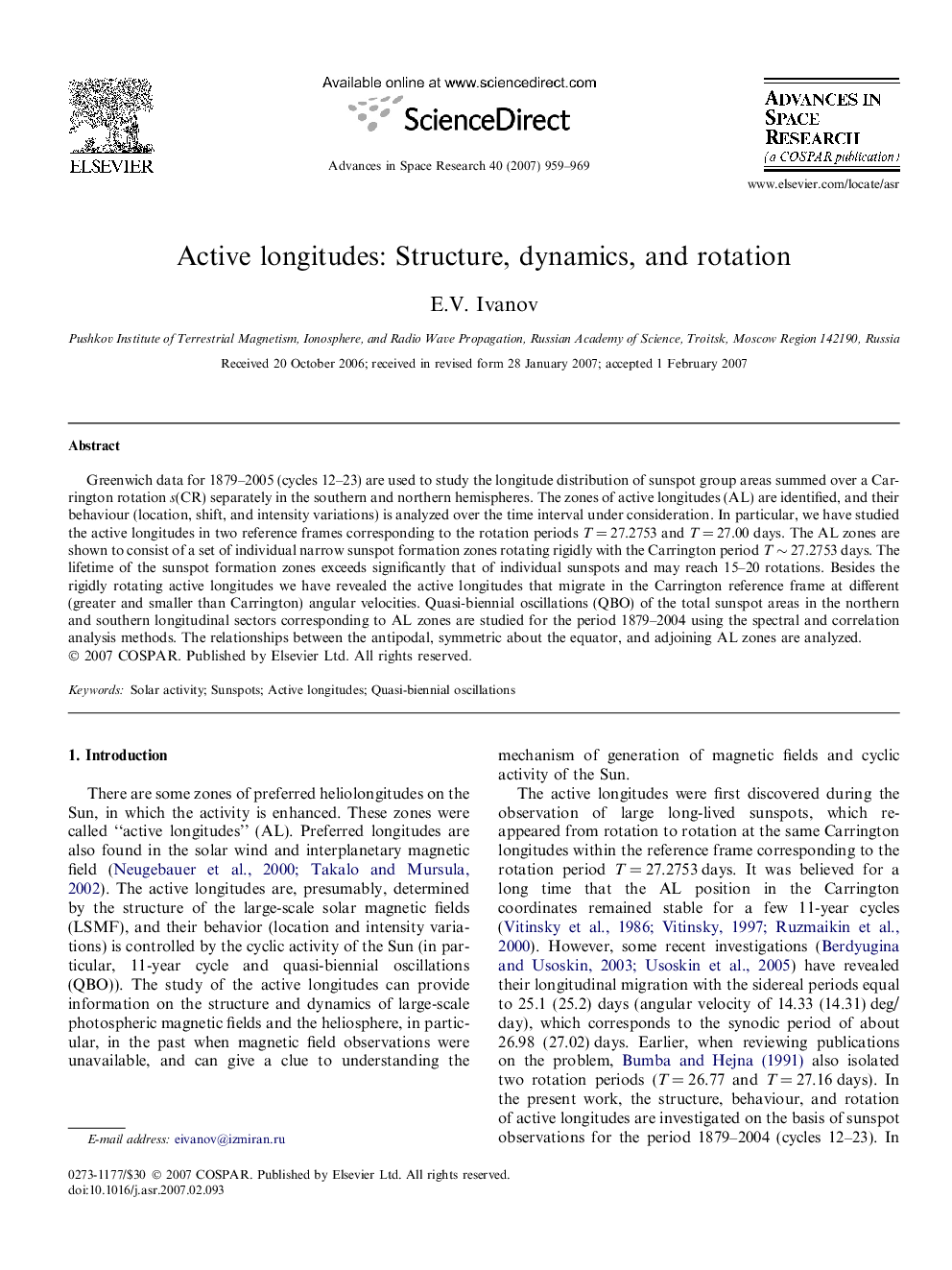| Article ID | Journal | Published Year | Pages | File Type |
|---|---|---|---|---|
| 1767030 | Advances in Space Research | 2007 | 11 Pages |
Abstract
Greenwich data for 1879-2005 (cycles 12-23) are used to study the longitude distribution of sunspot group areas summed over a Carrington rotation s(CR) separately in the southern and northern hemispheres. The zones of active longitudes (AL) are identified, and their behaviour (location, shift, and intensity variations) is analyzed over the time interval under consideration. In particular, we have studied the active longitudes in two reference frames corresponding to the rotation periods T = 27.2753 and T = 27.00 days. The AL zones are shown to consist of a set of individual narrow sunspot formation zones rotating rigidly with the Carrington period T â¼Â 27.2753 days. The lifetime of the sunspot formation zones exceeds significantly that of individual sunspots and may reach 15-20 rotations. Besides the rigidly rotating active longitudes we have revealed the active longitudes that migrate in the Carrington reference frame at different (greater and smaller than Carrington) angular velocities. Quasi-biennial oscillations (QBO) of the total sunspot areas in the northern and southern longitudinal sectors corresponding to AL zones are studied for the period 1879-2004 using the spectral and correlation analysis methods. The relationships between the antipodal, symmetric about the equator, and adjoining AL zones are analyzed.
Related Topics
Physical Sciences and Engineering
Earth and Planetary Sciences
Space and Planetary Science
Authors
E.V. Ivanov,
